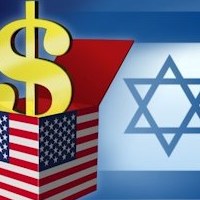![]()
Sat, June 04, 2011 Updated: Sun, June 5, 2011 – 5:48 pm | Rubin Reports | By Barry Rubin

No, this picture is not taken during the Jan/Feb 2011 Tahrir Square revolution in Egypt. This picture was taken in Tehran December 8, 2008, when demonstrators were protesting Egypt's ties with Israel shouting slogans in front of The Interests Section of the Arab Republic of Egypt in Tehran. (REUTERS/Stringer)
Egypt Is The New Iran
1. How Egypt is the New Iran
To put it simply, what has happened in Egypt is not just the undoing of the “Mubarak regime” but the undoing of the “Sadat regime,” that is, repealing the revolution Anwar al-Sadat made in the late 1970s and early 1980s.
Sadat changed Egypt’s course from a radical state trying to destabilize other Arab countries, destroy Israel, and oppose U.S. interests. He deemphasized spreading revolution, made peace with Israel, and allied Egypt with the United States.
Now, with help from President Barack Obama, those processes have been undone. Egypt will return to the pre-Sadat era to support radical forces, try to wipe Israel off the map, and oppose U.S. interests.
According to a recent poll, 65 percent of Egyptians said they supported the revolution because of economic reasons; only 19 percent cited lack of democracy. Eighty percent of Egyptians say they believe their economic situation will improve in the next year. But it won’t. Foreign investment won’t risk sending money to Egypt; tourists won’t risk going.
When Arab governments can’t provide cheap bread they turn to cheaper hatred and foreign adventures. The only question is the relative proportion of radical nationalism and Islamism there will be in that mix. The mass media will discover this in September. Yet it is obvious in June.
Egypt’s transformation will be for today what Iran’s meant for the last thirty years. Inasmuch as U.S. influence had an effect, Jimmy Carter’s incompetence helped give us Islamist Iran, Barack Obama’s incompetence and ideology helped give us radical (perhaps Islamist) Egypt.
2. Egyptian “Moderate” Leader: We Don’t Want to Fight Israel; We Just Have To.
And what about the Facebook kid moderates? One of their main leaders, Ahmed Maher, gave a talk at MIT on April 29. He said, according to the translation:
“We do not want to have any problems or war with anyone. But there are things we cannot ignore. There are people beside [neighboring] us being oppressed and killed. And they have been treated very harshly, Palestine. We cannot remain silent about something like this.”
In fact, though, the translation was wrong. He used the word “ibada,” which doesn’t mean “oppressed and killed” it means “genocide.”
This mistranslation softens the point and the extreme hatred even Egyptian “moderates” have toward Israel. But let’s leave that aside to consider what Maher’s saying:
We don’t want conflict or war with our neighbors BUT there’s genocide next door and so….
If you believe genocide is being committed next door one must act, right? If the United States went to war to “protect” Libyans; how can Egypt not do so to save fellow Arabs and Muslims from being murdered a few miles away?
Thirty years after the Egypt-Israel peace treaty; eighteen years after Israel agreed to the Palestinian Authority ruling almost all West Bank/Gaza Palestinians; and six years after Israel withdrew from all of the Gaza Strip, the basic Egyptian moderate’s view of Israel has not changed one bit.
A group that openly proclaims it wants to kill all Jews (genocide, ibada) rules the Gaza Strip. It violently represses any opposition, helps to expel all of the Christians there, teaches children that they should grow up to be terrorists and kill Jews, breaks a functioning ceasefire and openly attacks Israel militarily. Israel defends itself. But to this Egyptian moderate (whose statement on Israel the audience at MIT applauded wildly) Israel is supposedly the one committing genocide.
Why should Israel’s giving up all of the West Bank and east Jerusalem have any more effect than Israel leaving the Sinai Penninsula, the Gaza Strip, southern Lebanon, and the populated portions of the West Bank? And how can anyone dare assert that doing so would end the conflict without even having the decency to deal with these facts?
Contemplate those three paragraphs before advocating the idea that more Israeli concessions will bring peace.
This is no abstraction. After September, Egypt will have a radical, possibly Islamist parliament. Before the year’s end it will have a radical, possibly Islamist, president.
— What hope is there for the 30-year-old Egypt-Israel peace treaty?
— Will the U.S. government recognize and do something about it if/when Egypt stops honoring the peace treaty (whether or not it is explicitly announced?
— If Hamas attacks Israel again (inevitable) will Egypt join in the war?
— Will Egypt let thousands of terrorists and volunteers cross into Gaza to fight? Weapons to flow freely from Iran and Syria? Huge amounts of money to go into Gaza to finance the war?
— Will Egypt let — or just not try too hard to stop — terrorists crossing the Egypt-Israel border to wage attacks, thus possibly triggering an Egypt-Israel war?
Obama and European foreign policy address none of those issues; the mass media doesn’t discuss them.
3. So Who Are the Good Guys in Egypt?
A star is born and her name is Yasmine el-Rashidi. She’s written an E-book on Egypt’s revolution. Her article is featured in the New York Review of Books. El-Rashidi is good at describing conditions in Egypt. Her article begins:
“On a recent afternoon…in a busy downtown Cairo street, armed men exchanged gunfire, threw rocks and Molotov cocktails, and freely wielded knives in broad daylight. The two-hour fight, which began as an attempt by some shop-owners to extort the customers of others, left 89 wounded and many stores destroyed. In the new Egypt, incidents like this are becoming commonplace. On many nights I go to bed to the sound of gunfire….”
“Even more worrying, it seems increasingly clear that a variety of groups have been encouraging the violence….There have been a series of attacks on Copts, and the perpetrators seem to include hardline Islamists (often referred to as Salafis), remnants of the former regime, and even, indirectly, some elements of the military now in charge, who have allowed these attacks to play out — all groups that in some way have an interest in disrupting a smooth transition to a freely elected civil government and democratic state.”
The second paragraph is a typical view hinting at a conspiracy rather than facing the reality that Muslim militants have long hated Christians and that preachers and key Islamic texts incite that violence.
If any Arabs are facing “ibada” it isn’t the Palestinians, it’s the Christians of Egypt, and also the Gaza Strip, Iraq, Pakistan, and several other places.
At any rate, el-Rashid shows she’s sophisticated by not blaming Zionist and American agents. Many or most Egyptians will do so. Indeed, in one of the first talk-backs to her article an Arab reader says this instability is being promoted by the United States, Israel, and the Gulf states (i.e. Saudi Arabia).
So who are the good guys? El Rashid proposes a candidate: the Muslim Brotherhood. Of course, it genuinely does want a smooth transition to an elected government since they’re the ones who’ll be elected. In her long article, El-Rashid only mentions the Muslim Brotherhood to praise it as being moderate and a force advocating tolerance.
Yet the Brotherhood is allied with the “radicals.” The two groups work together and their differences are merely tactical, not strategic.
What’s emerging in many places as the new line among Western media and experts:
Al-Qaida, Salafi extremists, bad!
Hamas, Syrian regime, Muslim Brotherhood, good!
We’re already hearing that theme regarding the Gaza Strip and as a rationale for opposing a revolution in Syria. Perhaps that’s what they’ll tell us after the Brotherhood emerges as the most powerful bloc in Egypt.
About the author,
Barry Rubin is director of the Global Research in International Affairs (GLORIA) Center, editor of the Middle East Review of International Affairs (MERIA) Journal, and a featured columnist at PajamasMedia http://pajamasmedia.com/barryrubin/ His latest books are The Israel-Arab Reader (seventh edition), The Long War for Freedom: The Arab Struggle for Democracy in the Middle East (Wiley), and The Truth About Syria (Palgrave-Macmillan). The website of the GLORIA Center is http://www.gloria-center.org. His PajamaMedia columns are mirrored and other articles available at http://www.rubinreports.blogspot.com/.



 RSS
RSS











Latest Comments
Hello Mike, Thank you for your positive feedback to the article. I felt there wasn’t too much critical analysis of ...
Thanks for this considered and well constructed article. A follow up article on the manner in which the editorial contro...
THE CLUELESSNESS OF CLAIMING THAT OBAMA'S MIDDLE EAST POLICIES WERE A FAILURE CANNOT BE FURTHER FROM THE TRUTH, WHAT THE...
As long as Obama is the president of the usa do not trust the us government......
Thank you for an good read....